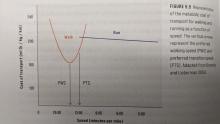My FTP improvement plan
In my previous post I wrote in general about my goal of raising my FTP. Here I will lay out in more detail what my plan to do this looks like, and why.
First I must apologize for the length of this post. As it is, I tried to simplify what is not a simple process. I will further justify my verbosity by pointing out that this is the same level of planning that I, as a coach, will put into any of my athletes’ training plans. It starts with a framework. Then the fun begins as we tailor it to fit real life.
- Read more about My FTP improvement plan
- Log in or register to post comments







